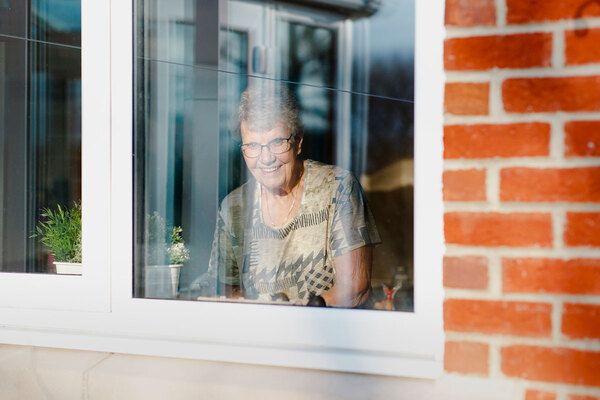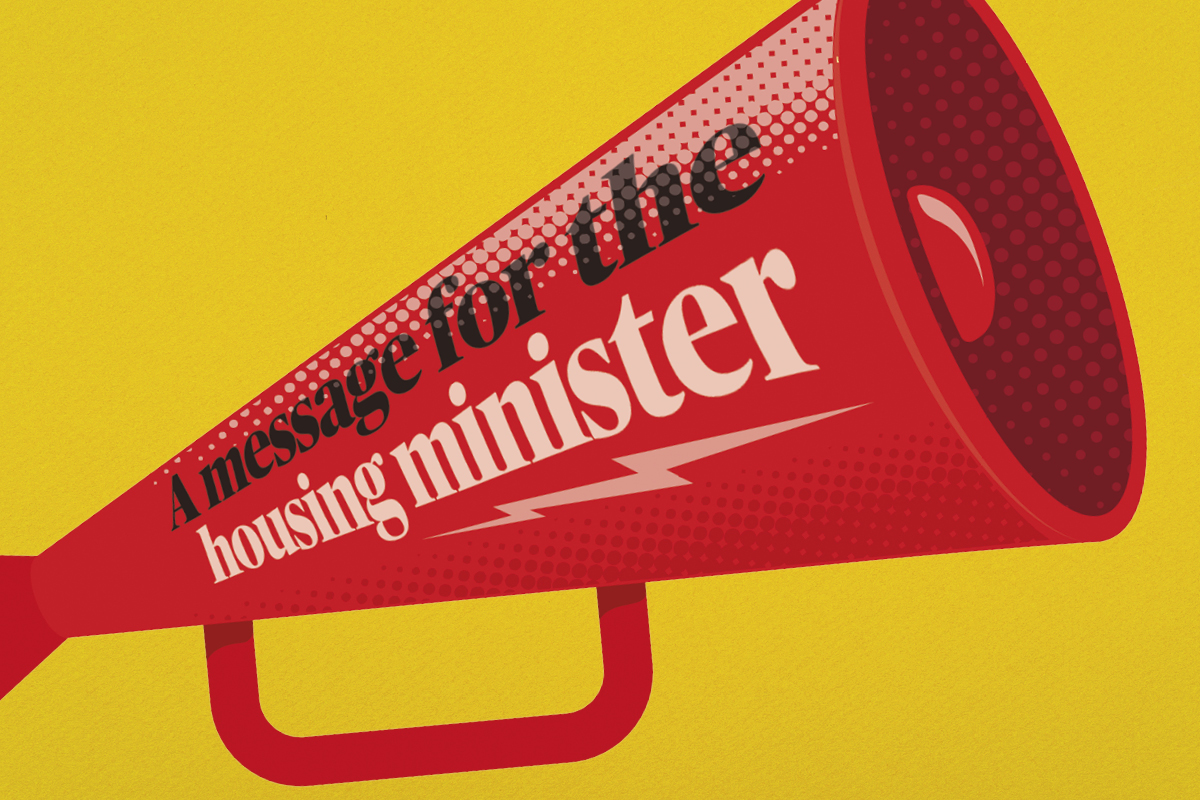Government criticised for sidelining plans for national tenant voice
The government has been accused of sidelining its pledge to give social housing tenants a stronger voice on the national stage following the Grenfell Tower fire, by the tenant group it has worked with most closely since the tragedy.
Leslie Channon, chair of the A Voice for Tenants (AV4T) steering group, this week wrote an open letter to housing minister Kit Malthouse outlining the group’s “disappointment” with progress on the eve of the second anniversary of the fire. She was prompted to do so by a growing alarm that the government may be backtracking on one of its most important promises made after the fire.
The public letter is significant because members of the steering group have worked closely with government since Grenfell.
They helped to set up the national consultation with tenants that took place across the UK in late 2017 and 2018 that various housing ministers attended.
The letter effectively puts AV4T’s activities on semi-permanent hold, with Ms Channon explaining that “our group, which has no financial resources, is now finding it hard to progress any further”.
The feeling is that the government is not taking the issue seriously and could reject any moves for a voice for tenants outright.
In the letter, Ms Channon says that “there has not been any significant progress in achieving the prime minister’s aim to bring the four million social housing tenants into the political process”. Theresa May made that pledge in the weeks immediately following the Grenfell Tower fire.
In the letter, Ms Channon said: “Perhaps we were naïve but we never anticipated that it would take nearly two years for any progress to be made.”
The steering group, which includes representatives from tenant engagement organisation Tpas, the Confederation of Co-operative Housing and the TAROE Trust, has been calling for the government to help set up a national body in England to speak on behalf of tenants.
Since it started campaigning on the issue, organisations such as Shelter and the National Housing Federation have made similar calls.
AV4T wants the government to fund a consultation to draw up plans for a national voice for tenants.
In her letter, Ms Channon added: “We are disappointed that, despite the overwhelming support for the principles in our proposals, there has been next to no dialogue between government and our group since the end of 2018.”
The letter invites Mr Malthouse to a meeting, which AV4T has asked Inside Housing to host, to discuss a way forward.
Speaking to Inside Housing, Ms Channon added that she thinks that if previous housing minister Alok Sharma, who attended the majority of the meetings that were held with tenants, had remained in post “we would have had this signed off over a year ago”.
“The change in housing ministers hasn’t helped,” she added.
A spokesperson for the Ministry of Housing, Communities and Local Government said it remains “committed to engaging with, and listening to, all social housing tenants”.
The spokesperson added that the government would publish its response to the consultation on the Social Housing Green Paper “in due course”.
A Voice for Tenants letter to the housing minister
Dear Minister
It is disappointing that, coming up to the two-year anniversary of the Grenfell tragedy, there has
not been any significant progress in achieving the prime minister’s aim to bring the four million social housing tenants into the political process.
We have asked Inside Housing to publish this letter because we as tenants consider that our input into the political process is sufficiently important to merit sector-wide debate.
We are writing to you again following our letter to you on 15 January, to invite you or your officers to a sectoral discussion to be hosted by Inside Housing on how best to develop national tenant representation.
We welcomed that your government agreed to our request to include a question about national tenant representation in the Social Housing Green Paper. We are sure that you will be delighted that in response to the government’s question, so many stakeholders in the sector have responded so positively that national tenant representation is needed.
We can confirm that this level of positive support for our proposals for national tenant representation is what we are experiencing also. As you know, a huge 93% of respondents to the survey we carried out (mostly from social housing tenants) said that there is a need for national tenant representation. Disappointingly, this was matched by a similarly huge 87% of respondents who considered that tenant voices are not currently heard in government policy discussions.
We are also pleased that all the major sectoral bodies support tenants’ views that there should
be national tenant representation, including Inside Housing, the National Housing Federation, the Association of Retained Council Housing, the National Federation of ALMOs, Shelter and Dame Judith Hackitt in her proposals about how to respond to the issues brought up by the Grenfell fire tragedy.
A Voice for Tenants Steering Group was formed in the wake of Grenfell, bringing together the national bodies that act on behalf of tenants alongside other tenants active nationally.
While our group consisted of the most nationally representative group of tenants at that time, we never purported to be representative of tenants. We have always made the case that it is not possible for any tenant group to speak on behalf of four million social housing tenants or achieve the prime minister’s aim to bring them into the political process without the means to have a two-way dialogue with them.
We approached then-housing minister Alok Sharma MP, offering to work with him constructively and coherently to start the process of building engagement with tenants. He responded positively to our approach and asked us both to draw up proposals for how dialogue with tenants could take place and to assist him in holding a set of ministerial events for him to meet with tenants. At that time, DCLG officers had no experience of working with tenants. It was as a result of our knowledge and experience and the tireless input of many of our volunteers that it was possible to hold a successful series of ministerial events. The minister and DCLG officers were surprised by the quality of tenant debate at those events, and they were a fantastic start to tenants and the government working in partnership together.
“We are disappointed that, despite the overwhelming support for the principles in our proposals, there has been next to no dialogue between government and our group since the end of 2018”
The Ministry broadly welcomed the proposals we had made to them at their request. Given the many different tenant viewpoints on how national tenant representation should be established, we have always proposed that A Voice for Tenants should be established through an extensive tenant-led national consultation with tenants. We saw this as a start to what would need to be a long-term means of building tenant involvement in the political process, which would need to include engagement with tenants in many different ways. The Ministry has asked us on many occasions to amend our proposals, which we have done, and the Ministry asked us to set out how national consultation should take place in our submission to the Social Housing Green Paper, which we also did.
We are disappointed that, despite the overwhelming support for the principles in our proposals, there has been next to no dialogue between government and our group since the end of 2018.
Time has moved on since we made our initial proposals to government in July 2017. More tenant groups are emerging, most of them with stronger views than ours that government should have taken action much sooner to redress power imbalances between tenants and landlords. We recognise that different proposals than ours may be appropriate now, and that we on the A Voice for Tenants Steering Group may not be the right people to take forward the national tenant representation debate on behalf of tenants. It is also the case that our group – which has had no financial resources – is now finding it hard to progress any further. Our last meeting had six people present in person, with a further nine people who could not afford train fares attending on the phone. Perhaps we were naïve, but we never anticipated that it would take nearly two years for any progress to be made and that there would
still be no resources to enable even our small group of tenants to debate issues.
The fundamental question remains regarding how the government and the sector are going to ensure that four million social housing tenants are going to be brought into the political process. If our proposals to government are not what is needed, then what is the government going to do to achieve the prime minister’s aim? How can the housing sector assist in this aim? We invite government and the sector to take part in a sectoral debate on this issue to be hosted by Inside Housing.
These are important issues within the fabric of our society. It is a fundamental democratic deficit that
the views of the eight million people living in the four million social housing tenanted homes are being ignored. Most social housing tenants feel totally disregarded and disrespected by politicians and their landlords alike. Unless we start to take steps to address their alienation and powerlessness, there will be long-term negative consequences for society as a result of it.
Yours faithfully
Leslie Channon, chair, A Voice for Tenants Steering Group













